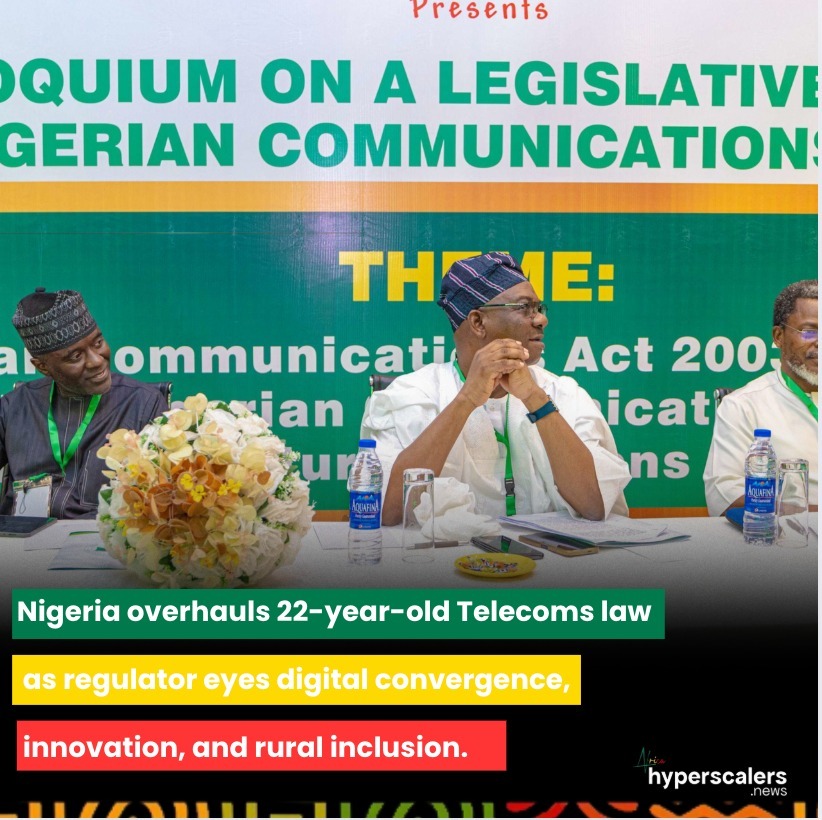Nigeria’s telecoms regulator is initiating a major overhaul of the country’s 22-year-old communications law, aiming to bring it in line with today’s digital realities—from artificial intelligence and 5G to cybersecurity and converging telecom and IT services.
The Nigerian Communications Commission (NCC) announced recently that it will revise the Nigerian Communications Act (NCA) of 2003, a landmark law that liberalized the telecoms sector and set the stage for Nigeria’s mobile and internet boom. But the NCC now says the Act has become increasingly outdated in the face of emerging technologies and digital business models.
“We envision a revised Nigerian Communications Act that not only addresses today’s challenges but anticipates tomorrow’s opportunities – a framework that positions Nigeria as a leader in the global digital economy,” said Aminu Maida, the NCC’s Executive Vice Chairman, during a stakeholder colloquium in Abuja.
Originally enacted to break the state monopoly held by Nigerian Telecommunications Limited (NITEL), the NCA catalyzed the rapid expansion of mobile telephony, internet access, and digital services such as fintech, telemedicine, and e-commerce. But technologies like AI, blockchain, the Internet of Things (IoT), and edge computing -nonexistent or nascent in 2003 – now play dominant roles in global telecoms.
At the core of the NCC’s proposed reforms is the introduction of flexible regulatory tools, including sandboxes, innovation hubs, and adaptive licensing models. These are meant to strike a balance between enabling innovation and ensuring regulatory oversight.
The revisions also seek to address the regulatory fragmentation caused by the convergence of telecommunications, IT, and broadcasting. While digital services such as streaming and VoIP span these once-distinct sectors, the current law still focuses narrowly on telecoms, leading to inefficiencies and policy overlap.

“The new Act has to encourage measures for promoting innovation, including research and development initiatives, innovation hubs, and partnerships with international organisations,” said Peter Ohiozojeh Akpatason, Chairman of the House of Representatives Committee on Communications.
Cybersecurity and data protection will also feature prominently. With digital platforms proliferating across Nigeria, the need for a cohesive legal approach to data privacy, cybercrime, and digital risk is critical. The NCC intends to align the new law with existing legislation like the Cybercrimes Act and the Nigerian Data Protection Act, while strengthening its own enforcement capabilities.
Despite the original Act’s success in expanding telecom access, Nigeria still suffers from a significant digital divide. Millions in rural areas remain unconnected or underserved. The updated legislation is expected to promote infrastructure sharing, reduce Right of Way (RoW) charges, and offer incentives to operators to extend services to hard-to-reach communities.
Systemic barriers such as multiple taxation, regulatory duplication, and bureaucratic delays—long criticized by operators—are also being addressed. The NCC says the revised framework will harmonize fiscal and regulatory processes across government levels to enhance investor confidence and private-sector participation.
“This is a moment to reassess, recalibrate, and realign Nigeria’s digital future with global best practices,” Maida said. “With these sweeping reforms, the NCC hopes to deliver an inclusive, future-ready regulatory framework that drives Nigeria’s digital transformation and global competitiveness.”




